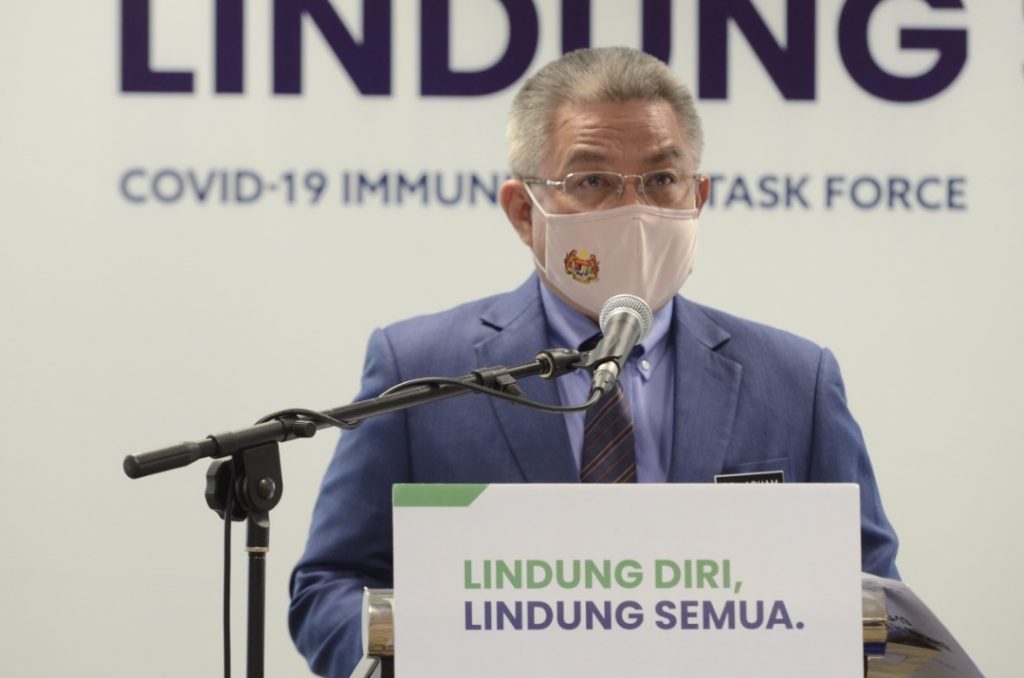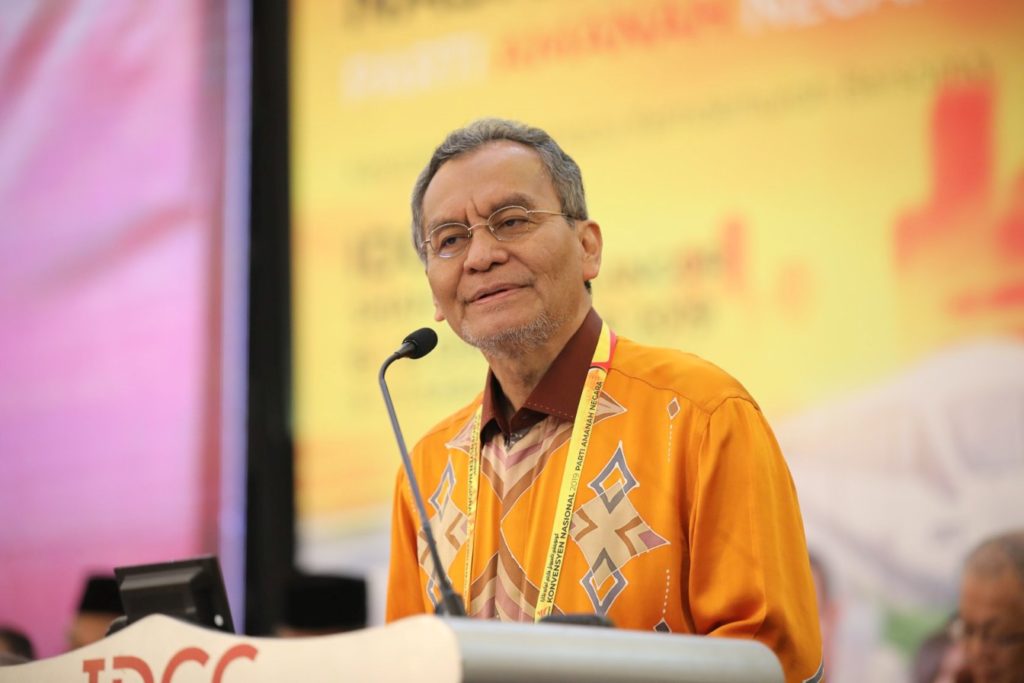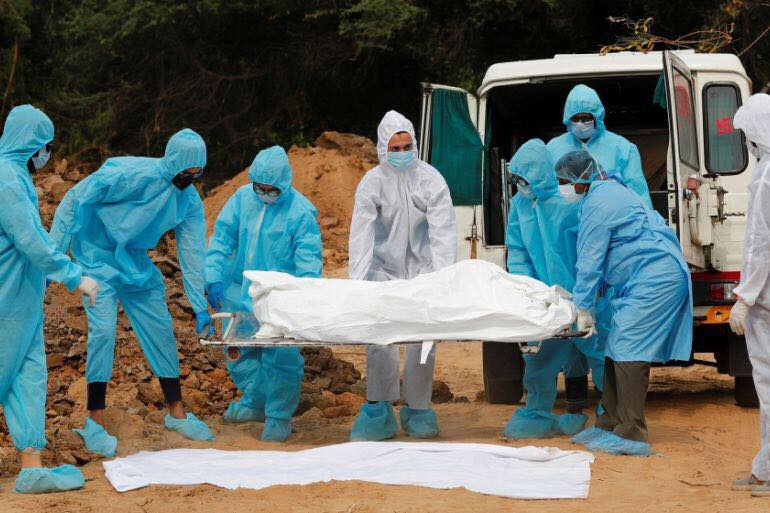KUALA LUMPUR, May 4 — Deaths caused by Covid-19 in Malaysia are higher than reported figures, said Dr Christopher Lee, the national advisor for infectious diseases in the Ministry of Health (MOH).
Dr Lee said that the coronavirus mortality data reported by MOH is based on deaths that occur as a direct consequence of the initial presentation of Covid-19.
“There are patients who survive the initial illness, but struggle with complications of Covid-19 like pulmonary, central nervous systems, and other diseases for months,” Dr Lee told CodeBlue.
Dr Lee pointed out the death incidents among recovered Covid-19 patients after they are shifted to the normal ward.
“Some of them passed away from these complications much later after Covid-19 recovery once the patient has already been transferred out of the Covid-19 wards to the general wards for continuance of care.
“These cases are not reported in our national Covid-19 mortality data.”
MOH’s guideline states that Stage Five Covid-19 patients in the worst stage of disease, who still require intensive care beyond 28 days of illness, can be discharged from Covid-19 care. This is based on the belief that Covid-19 patients are no longer infectious, or able to spread the coronavirus, after 20 days of sickness, even in critical cases.
“There are also patients who survive the initial Covid-19 disease, but subsequently pass away later due to worsening of their underlying comorbidities such as heart failure, renal disease. This data is not reported as Covid-19 deaths currently, so the actual mortality toll caused by Covid-19 is actually higher.
“It would be good to keep a census of these deaths as well to truly understand the actual mortality caused by Covid-19,” Dr Lee added.
As of yesterday, MOH has officially reported 1,551 Covid-19 deaths in Malaysia, or a 0.37 per cent case fatality rate among 417,512 cumulative infections.

At the same time, Dr Lee also noted that Covid-19 patients with severe lung or neurological complications are being followed up routinely by the respective subspecialties after being discharged from hospital.
“Hence, there should be long-term data on these complications locally.”
Dr Lee earlier had mentioned that Malaysia has very little data on “long Covid” patients in the country, or those who experience symptoms of Covid-19 that last for weeks or months beyond the initial illness.
CodeBlue reported that approximately half of asymptomatic Covid-19 patients are inclined towards clinical abnormalities, such as in their lungs, according to infectious disease expert Dr Lee Heng Gee from Queen Elizabeth Hospital. He said early last March that 40 to 50 per cent of Covid-19 patients in Malaysia are asymptomatic upon testing positive.

According to Health Minister Dr Adham Baba, MOH is following the Covid-19 death case definitions provided by the World Health Organization (MOH) to maintain consistency in reporting.
“For MOH, case definitions are used to determine if a succumbed due to a direct cause of Covid-19. Importantly, our case definitions are based on WHO definitions to ensure that our reporting on case fatality rate is consistent across different countries,” Dr Adham told CodeBlue.
In Malaysia, Covid-19 patients who die post-recovery — either from complications due to lengthy hospitalisation or from persistent effects of the disease — are not officially classified as Covid-19 deaths. People who die will not be tested for the virus if they are not suspected for Covid-19.
An infectious disease consultant, Dr Benedict Sim Lim Heng from Sungai Buloh Hospital, earlier said that Covid-19 patients who recover from the acute phase of the infection might later die from other causes due to the persistent effects of the disease, but their deaths are not categorised as Covid-related.
Prioritise State Authorities To Increase Momentum Of Mitigation Phase

Mitigation means no longer using containment measures like the Movement Control Order (MCO), but to ensure that the health care system is not under pressure and to protect people from developing severe disease or dying from Covid-19.
According to Selangor Task Force Covid-19 (STFC) chairman Dzulkefly Ahmad, MOH should improve their Covid-19 mitigation efforts in the country by working hand in hand with state authorities.
“We have been asking for the mitigation to happen with RTK-Ag instead of RT-PCR, but it has largely fallen on deaf ears especially when it comes to pool-testing,” Dzulkefly told CodeBlue.
“After all, who knows the state better than the state governments themselves? Hence they must be humble enough and engaging enough to talk and share with us in the state.”
Dzulkefly Ahmad, head of the Selangor Task Force Covid-19 (STFC)
Recently, the Health and Sciences Covid-19 Advisory Group of Experts (EAG) urged the government to focus on mitigation measures to prevent a fourth Covid-19 wave in Malaysia, as it is unrealistic to try and get infection rates down to zero now.
EAG also also suggested that the government conduct prompt and comprehensive surveillance through mass targeted testing using antigen rapid test kits (RTK-Ag) with quick test results.
“The anonymised data should be made available to the public so that people who have the ability to analyse the data, especially at state levels, can help MOH with the mitigation plan,” said Dzulkefly.
When asked if MOH is being complacent or facing a lack of manpower to gather data on “long Covid”, Dzulkefly said: “Well, it could be a combination of both. They should accept the fact that they cannot do it alone. They must engage with states, to help with the mitigation.”
Besides that, the former health minister stated that data on people who died from Covid-19 and died with Covid-19 will reflect the actual health impacts caused by this pandemic.
“We will get a better comparison to see deaths that are perhaps ‘hidden’ or are caused by other factors, but not Covid-19. Some countries have noticed that their prevalence of diabetes-related deaths has gone up because people were scared to go to hospital due to Covid-19 initially.
“Data on the severity of Covid-19 should be given according to the number of infections according to the stages and this should be made available at state levels.”
The Institute for Clinical Research (ICR) categorises mild Covid-19 patients from three stages — stage one: those who test positive but have no symptoms; stage two: those who experience Covid-19 symptoms but without pneumonia; and stage three: those with pneumonia but without hypoxia (lack of oxygen). Severe Covid-19 has two stages: stage four (pneumonia with hypoxia) and stage five (critically ill patients).
Dzulkefly also said that the daily reported Covid-19 cases should distinguish the actual new Covid-19 infections from backlogged cases.
“The death reporting can be much better. We do not even know now the time of admission to the time of death, especially among those who are brought in dead. This makes it difficult or meaningless for our comparison with other countries,” Dzulkefly added.








